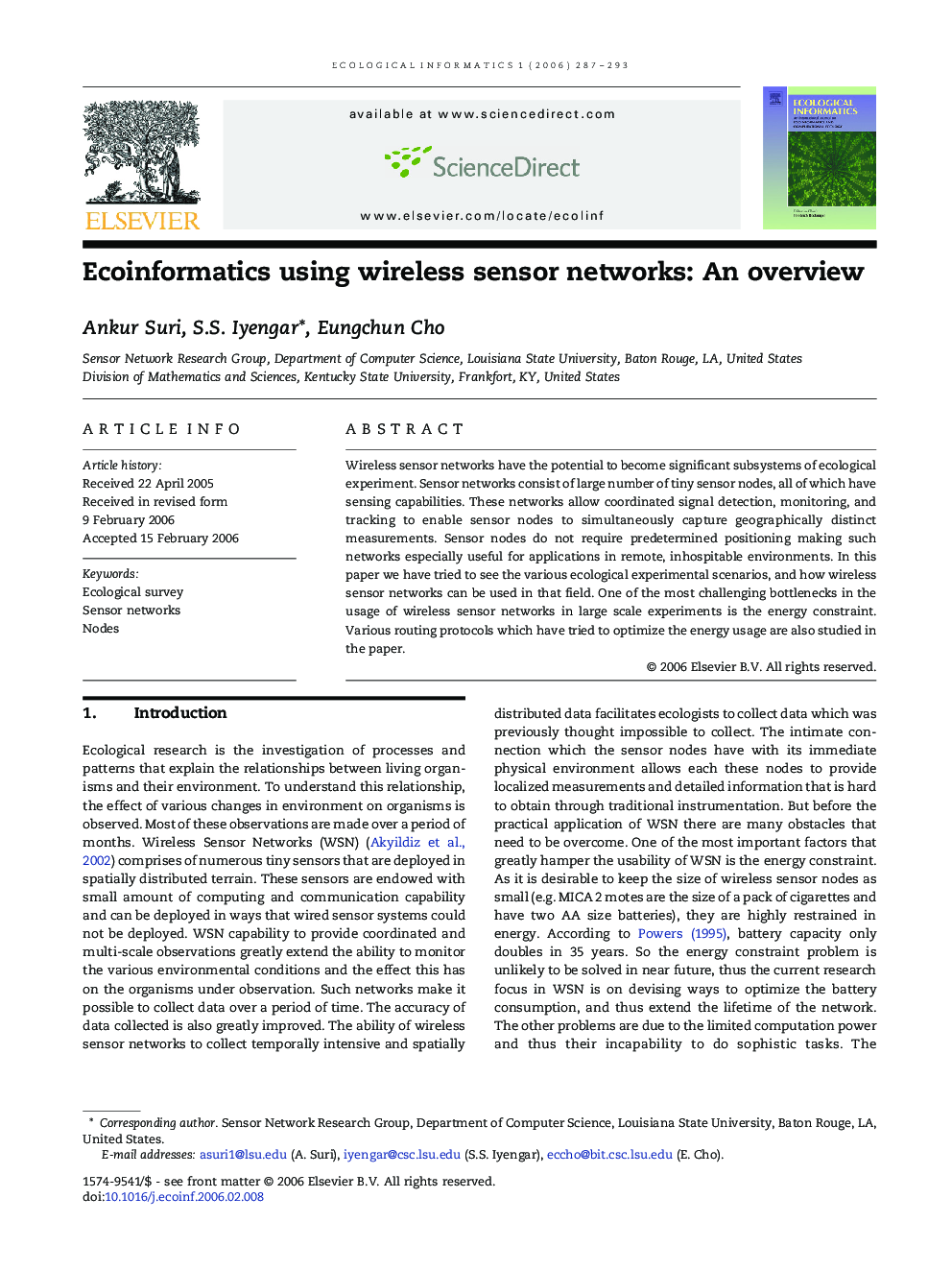| Article ID | Journal | Published Year | Pages | File Type |
|---|---|---|---|---|
| 4375482 | Ecological Informatics | 2006 | 7 Pages |
Wireless sensor networks have the potential to become significant subsystems of ecological experiment. Sensor networks consist of large number of tiny sensor nodes, all of which have sensing capabilities. These networks allow coordinated signal detection, monitoring, and tracking to enable sensor nodes to simultaneously capture geographically distinct measurements. Sensor nodes do not require predetermined positioning making such networks especially useful for applications in remote, inhospitable environments. In this paper we have tried to see the various ecological experimental scenarios, and how wireless sensor networks can be used in that field. One of the most challenging bottlenecks in the usage of wireless sensor networks in large scale experiments is the energy constraint. Various routing protocols which have tried to optimize the energy usage are also studied in the paper.
